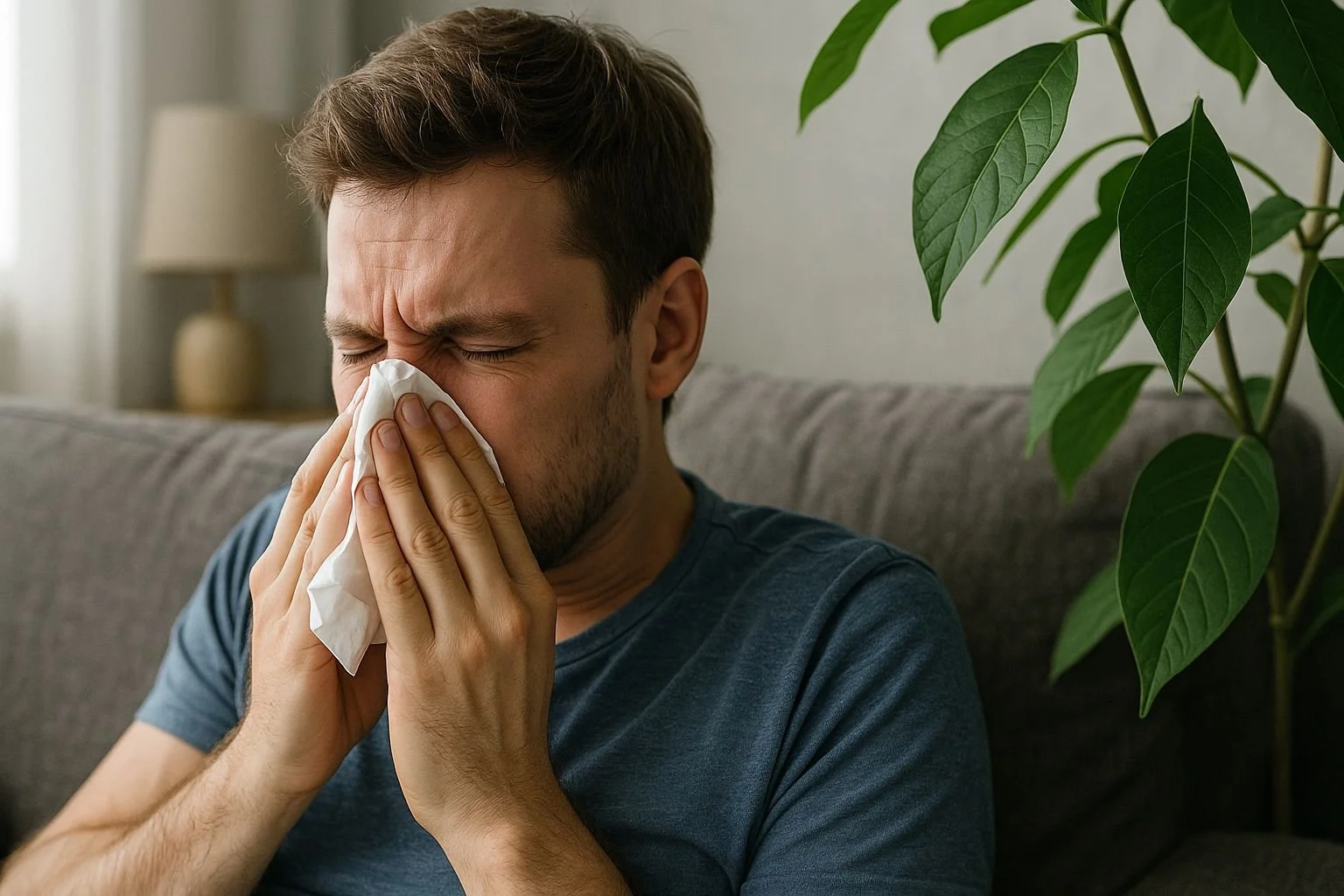What is the root cause of allergies?
Allergies are a common and frequently disturbing condition, yet what is the cause? Why do certain individuals respond in an extreme way to products that are not harmful to others? This blog explores the underlying causes of allergies, examining the intricate interrelationship of genetics, the environment, and the immune system to understand why allergies form and continue.
Understanding Allergies: An Immune System Overreaction
Fundamentally, an allergy is an overreaction of the body's immune system to a foreign substance, an allergen, which is normally harmless to the majority of individuals. The allergens may be inhaled, ingested, or enter through the skin. Examples include pollen, pet dander, some foods, insect stings, and drugs. In people with allergies, the immune system mistakenly perceives these substances as harmful and mounts a defense response.
The Role of Antibodies
One of the main contributors to allergic reactions is immunoglobulin E, an antibody that the immune system produces. When an exposed individual is initially exposed to an allergen, their body begins to produce enormous amounts of IgE antibodies directed against that allergen. These IgE antibodies bind to mast cells, which reside in tissues all over the body, such as the skin, nose, and mucus membranes.
The second time the individual comes into contact with the same allergen, the antibodies on the mast cells attach to the allergen, and this causes the mast cells to release chemicals like histamine and leukotrienes. The chemicals induce swelling, inflammation, mucus production, and other allergic symptoms.
The Complex Interplay of Genetics and Environment
Although the exact reasons why some individuals become allergic and others do not are not yet known, both genetic and environmental factors have important roles in contributing to the development of allergies
Genetic Factors: Genes are believed to be implicated since certain mutations are typical of individuals with allergies, and allergies are hereditary. People who have a history of allergies in their families are likely to develop allergies. Allergic patients also usually have elevatedlevels.
Environmental Factors: There are a number of environmental factors that may raise the chances of having an allergy. They are:
Repeated allergen exposure
Exposure to pollution, i.e., tobacco smoke and vehicle exhaust
Interestingly, early exposure to a variety of microbes and foods in early childhood can fortify the immune system and may even prevent allergies from arising. This idea is in line with the "hygiene hypothesis," which proposes that lower exposure to microorganisms in early childhood because of high levels of cleanliness and antimicrobial use might be responsible for the increase in allergic diseases.
The Hygiene Hypothesis
The hygiene hypothesis would hold that reduced exposure to viruses and bacteria during childhood can increase the risk of acquiring allergies. With fewer children, cleaner living conditions, and early antibiotic treatment, the immune system is not properly educated on how to react to non-harmful substances, and it overreacts upon encountering allergens. Microbes within the digestive system, respiratory system, and on the skin help to shape the immune response.
Controlling Allergies by Environmental Control
No matter the cause, control of the environment to reduce exposure to allergens is often necessary in managing allergies. This can involve frequent cleaning to eliminate dust, pet dander, and mold spores[6]. Professional cleaning services, like Sparkly Maid Miami, specialize in deep cleaning that focuses on allergens imbedded in carpets, upholstery, and other hard-to-clean areas, allowing for a healthier indoor environment. If you are moving, hiring a moving company that is familiar with the special requirements of allergy sufferers can help make the transition smoother by limiting exposure to allergens.
Adult-Onset Allergies
Adults also can acquire new allergies, even in the absence of a past history. In a few instances, this could be because of an environmental change that exposes one more to an allergen trigger, like the addition of a new pet to the household.
Sparkly Maid Miami provides specialized cleaning for allergy patients as well; visit their website for information on having an allergen-free home environment.
The underlying cause of allergies is a multifaceted interaction of genetic predispositions, environmental exposures, and immune responses. Although the precise mechanisms remain to be discovered, knowledge of these factors is essential for the successful management of allergies. Limiting exposure to allergens through lifestyle modifications and professional cleaning, such as provided by Sparkly Maid Miami, can greatly enhance the quality of life for those with allergies.
